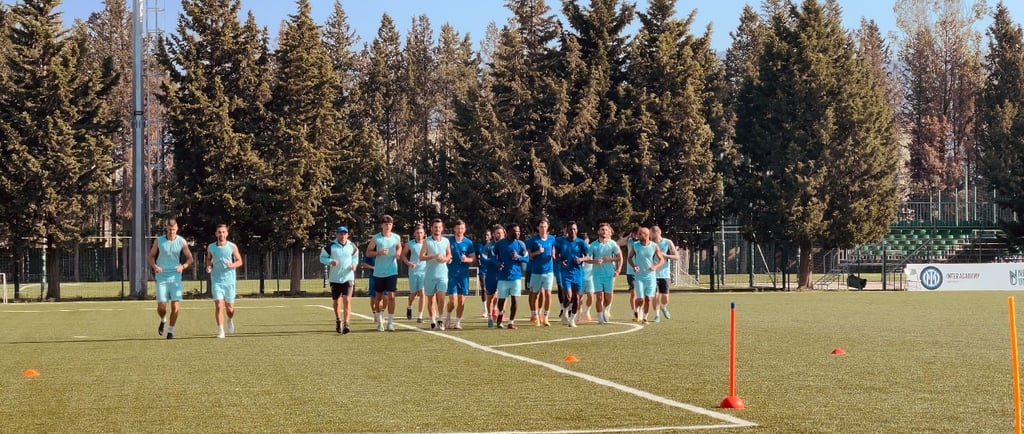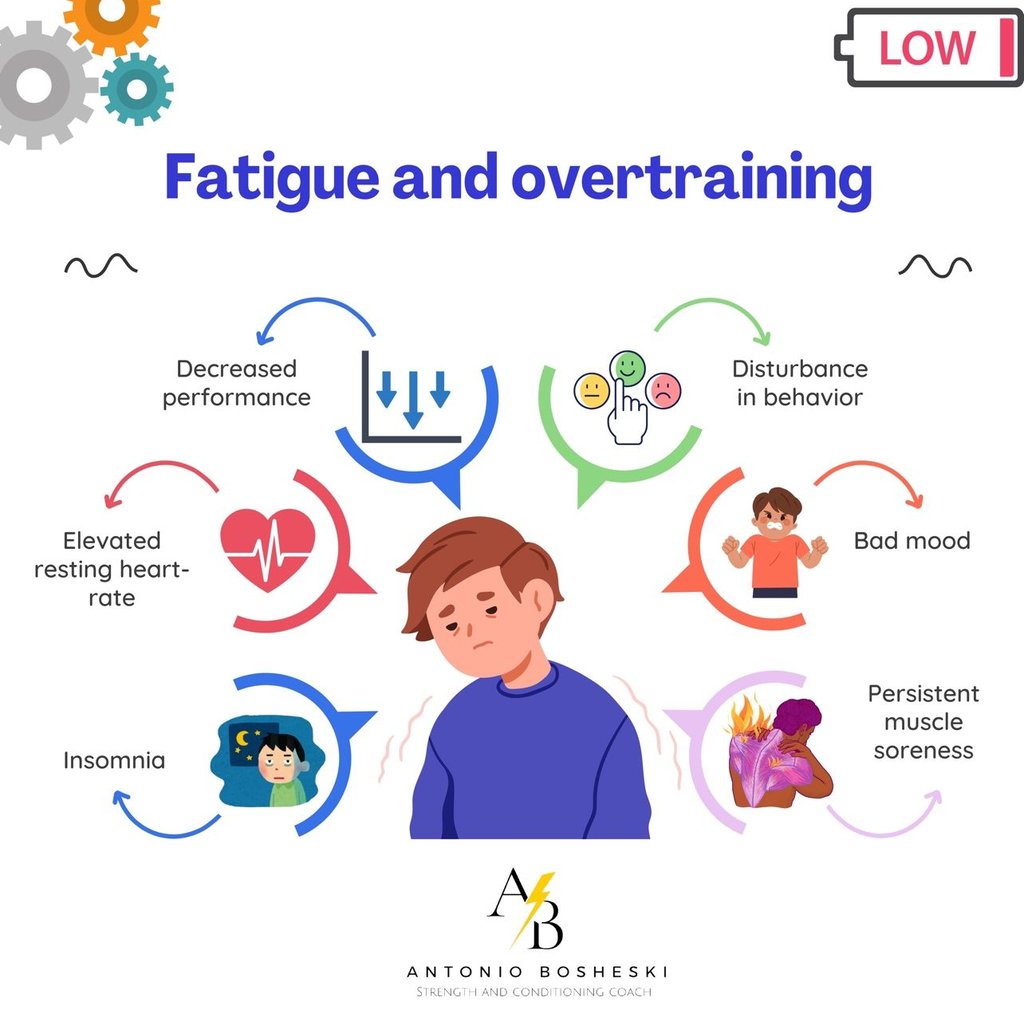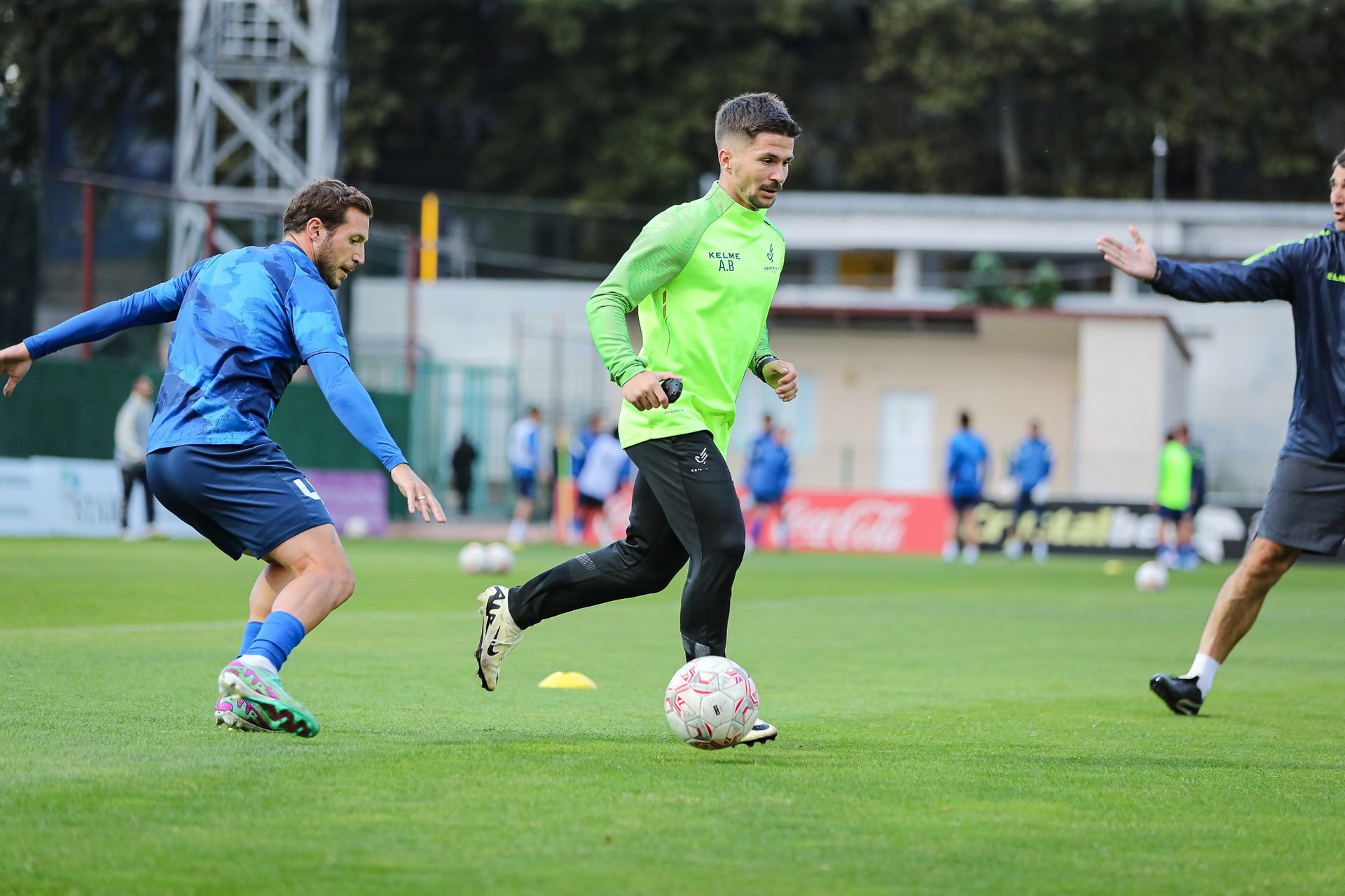Fatigue or Overtraining?
Understanding Fatigue in Football


Definition of Fatigue: Fatigue is a temporary decline in performance that can be reversed after a few hours or days of rest. It exists on a broad spectrum and can be categorized into two primary types:
Acute Fatigue:
Characterized by a temporary decrease in performance.
Can typically be reversed within a few hours of rest.
Severe Fatigue:
Requires longer periods of rest for recovery.
Often a result of prolonged physical and mental stress.
Mental Demands in Football: Football players are required to maintain a high level of focus and mental alertness throughout matches. This mental load stems from several factors:
Decision-Making Under Pressure:
Players must make quick and accurate decisions within seconds, adjusting to the constantly changing dynamics of the game.
These decisions are often made under intense pressure from fans, coaches, teammates, and the media.
Tactical Awareness:
Players must continuously process and apply tactical instructions.
They need to remain alert for long periods and adapt quickly to changes in the opposition and their teammates.
Mental Stress:
External pressures from coaches, supporters, sponsors, and media contribute to an increased mental load.
Personal stressors such as family, relationships, and daily life also add to mental fatigue.
Information Processing:
Players constantly receive and process information in a highly dynamic environment.
This cumulative mental load can lead to mental fatigue, which negatively affects physical performance.
Overtraining and Its Symptoms: Overtraining is a complex condition with diverse and highly individual symptoms. The term overtraining syndrome is used to describe its chronic form.
Key Symptoms Include:
Performance Decline:
A decrease in athletic performance, though this may simply be due to fatigue.
Functional overreaching occurs when athletes undergo extreme training with the aim of improving performance.
Behavioral and Mood Disturbances:
Changes in mood and behavior are early indicators and easier to identify.
Physiological Measurements:
Heart rate monitoring can sometimes be useful.
Blood tests are often recommended as preventive measures but have not shown clear predictive markers for overtraining.
Complex Nature of Symptoms:
Symptoms of overtraining vary significantly between individuals, making diagnosis challenging.
Conclusion: Fatigue, recovery, and adaptation are essential aspects of the training process that directly affect athletic performance. Through training, the body experiences various forms of stress and fatigue. Understanding the mechanisms of fatigue allows athletes to:
Prevent overtraining.
Reduce the risk of injury.
Optimize performance through balanced recovery strategies.
By effectively managing physical and mental fatigue, football players can sustain peak performance throughout their careers.



